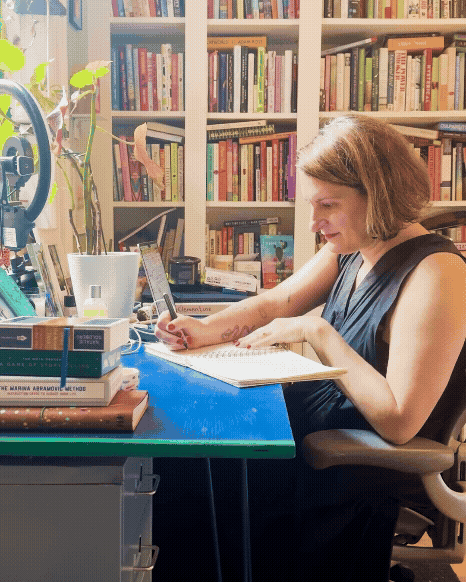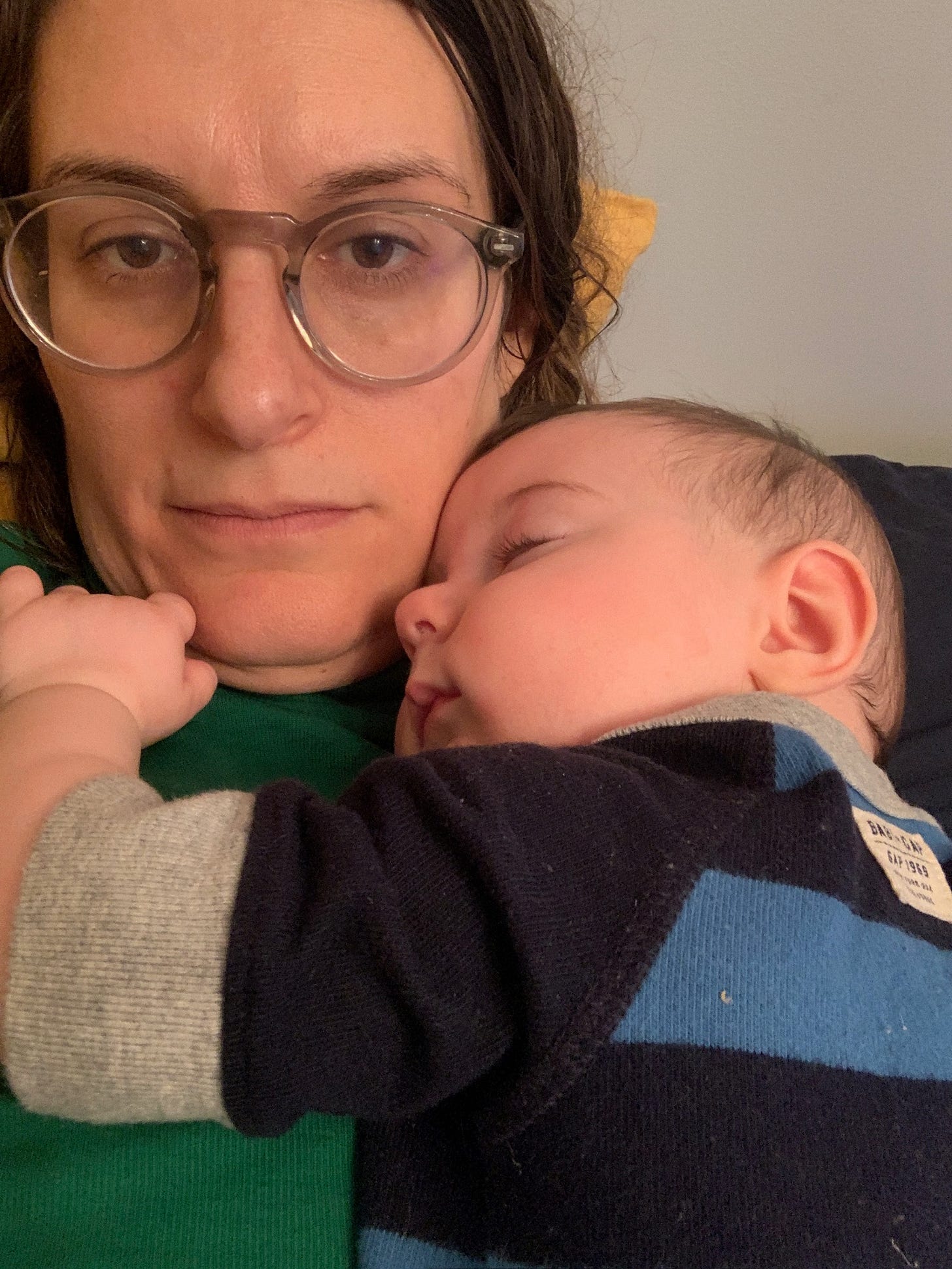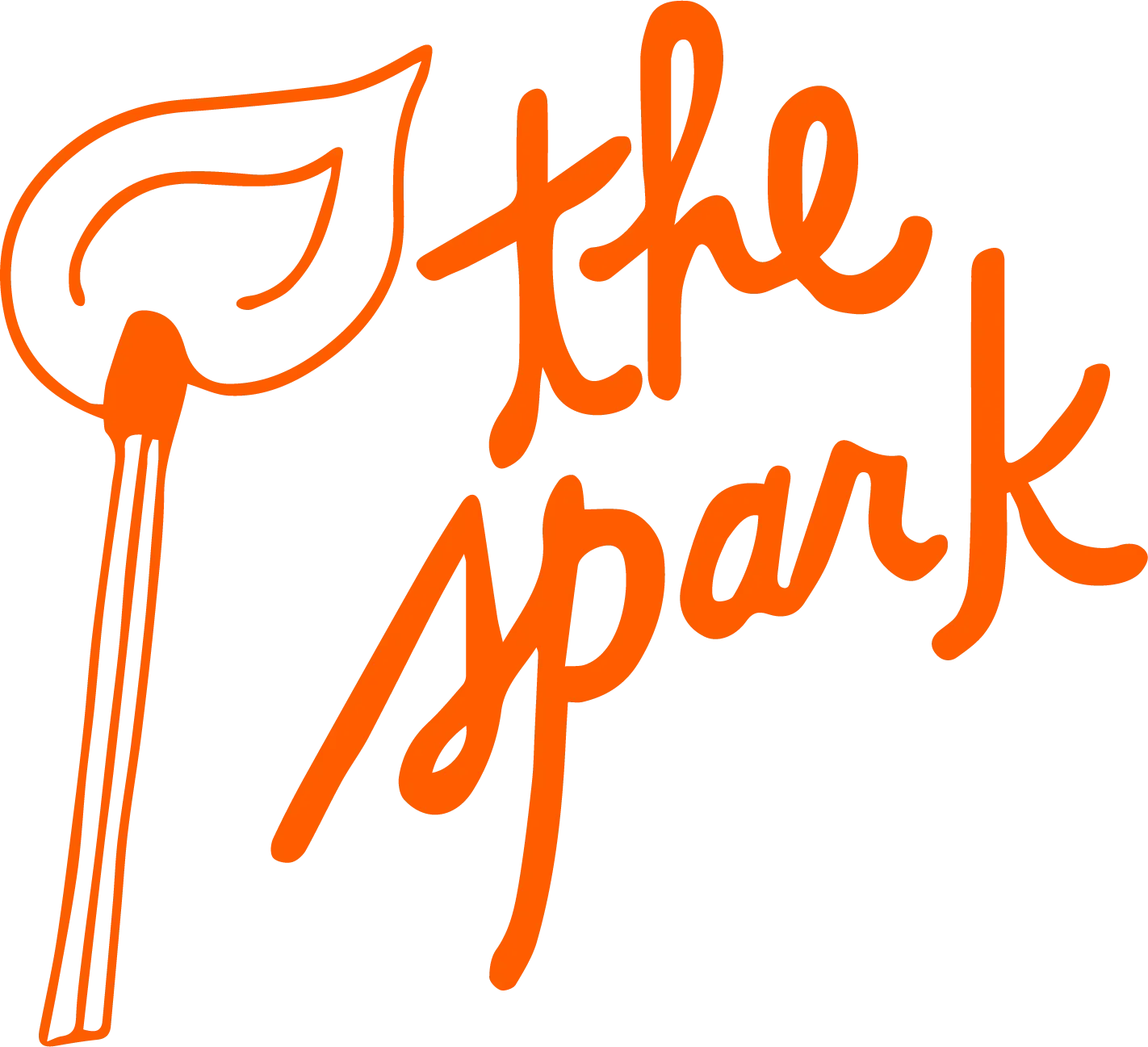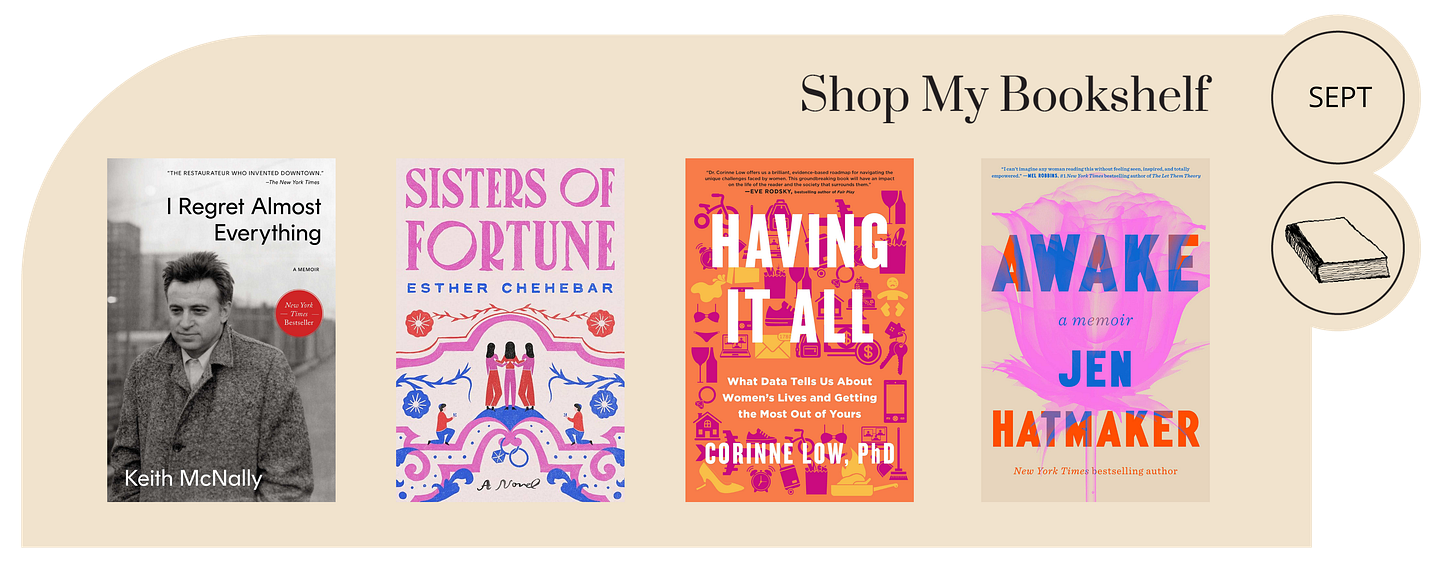I spent years writing different versions of my memoir, but something always stopped me. The problem was this: I couldn’t figure out how the book would end. I couldn’t see my way past that tricky midpoint to whatever came next.
There was a version of the book that was about my relationship with my mother. A version about my divorce. A version about my complicated ancestors. But which story was the story? Which could carry the book? And how would I know without writing three different books from start to finish?
Couldn’t someone tell me what to do?!
You’re not going to like my answer.
No one could tell me what to do. Not even me. I couldn’t think my way into the “right” book. I had to keep living my life until I lived my way into the story that needed to be told.
Here’s what I mean:
I took an amazing class with Megan Stielstra where she walked us through an exercise on perspective. She told the story of running into an ex’s new girlfriend in a nightclub bathroom and how she felt at that moment just months after the breakup. But then Megan did a magic trick. What would have happened, she asked, if she had written that same scene of the nightclub bathroom from her perspective one year later when she was dating someone else she loved? Or five years later? Or 10? Five years later Megan had met someone else and was in love. Ten years later she had a kid that she adored. Even more years later she was divorced from the man she had loved. Her perspective on the night club bathroom kept shifting over time.
So which story was the story she wanted to tell? The jealous, self-doubting ex-girlfriend? The healed, in-love-with-someone-else woman? The middle-aged, divorced, grown up with an almost-teenager?
All of this is to say: I couldn’t write those other versions of my book because my perspective was off.
I hadn’t lived my way to the other side of my relationship with my mother. I couldn’t look back on my past self going through her divorce with a newfound sense of wisdom and reflection. I hadn’t found the right frame or spine to tell my story. It wasn’t that I was too close to those events—my relationship with my mother had been ongoing for 40-something years–but I didn’t know what it meant.
Until…my daughter was born. In those hazy, postpartum nights it all became clear. The book I wanted to write wasn’t about my mother. And it definitely wasn’t about my divorce. It was about all the ways women are bombarded with messages about who they should be in the world–and how through all of that noise we decipher our deepest desires. It was about becoming a mother by mothering, not because some alarm clock went off and said: it’s time.
Ding, ding, ding.
There it was. I’d found the larger, universal story I wanted to sink my teeth into. But I wouldn’t have been able to write that story, the one that eventually became The Mother Code, if I’d banged my head against the wall trying to write all the other versions of my book. I needed to live my way into the answer. I needed to keep writing.
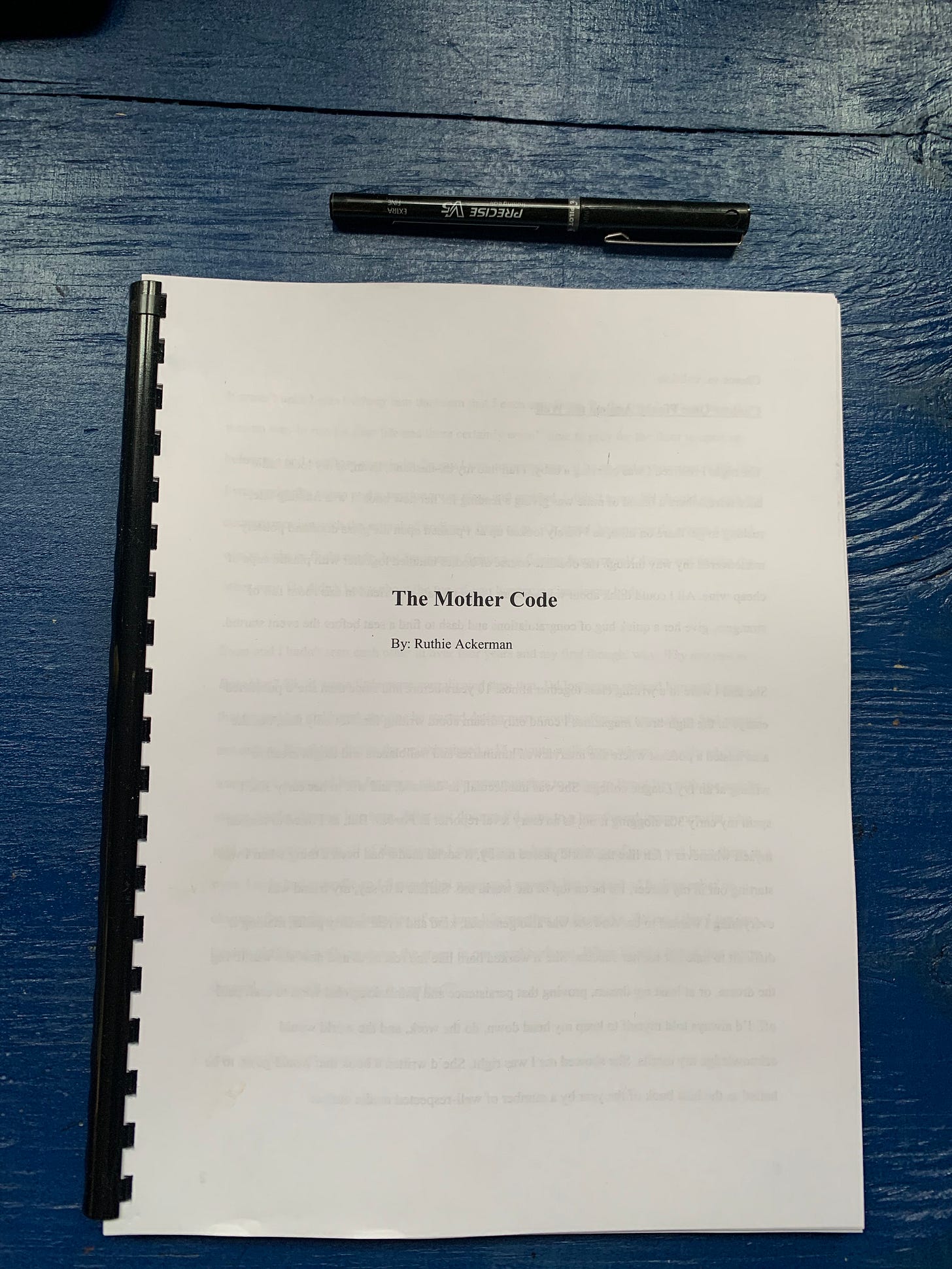
So here’s your assignment:
Pick a moment that rocked your world (like Megan’s nightclub bathroom moment).
Now write down how that moment felt when you were in it.
How did you feel looking back on it, six months later?
One year later?
Five years later?
10?
What were the lessons or reflections you understood at each moment in time?
Which perspective feels the juiciest? Try writing from there.
Just a few spots left for my 6-month book builder starting the week of Sept 29th! This six-month book-writing boot camp combines the tight-knit community and accountability of my classes with the individualized brainstorming, goal setting, editing, and hand holding of working with me one-on-one.
By the end of six months, you will have:
A roadmap of your book – with a clear structure and narrative arc
The first 2-3 chapters of your book written
An understanding of where your book fits in the marketplace
A clear idea of what your book is not
The question or quest that is at the heart of your book
To be able to pull apart what the universal vs the personal story of your book
Learn more about the program and apply here.
“In Ruthie’s book incubator class, not only are you taken seriously as a writer, it’s a given that you’re a writer who plans to write and publish a book. This external expectation has a way of infecting your own thinking, fostering the belief that you really do have a book in you and this group will be the catalyst to help bring it to life. Writing a book at all is hard. Writing a book alone is even harder. Ruthie’s writing class is the ideal combination of emotional support, feedback on your writing, and the authentic belief that you can and will bring your book to life.”
- Barrett Brooks, Executive Coach



